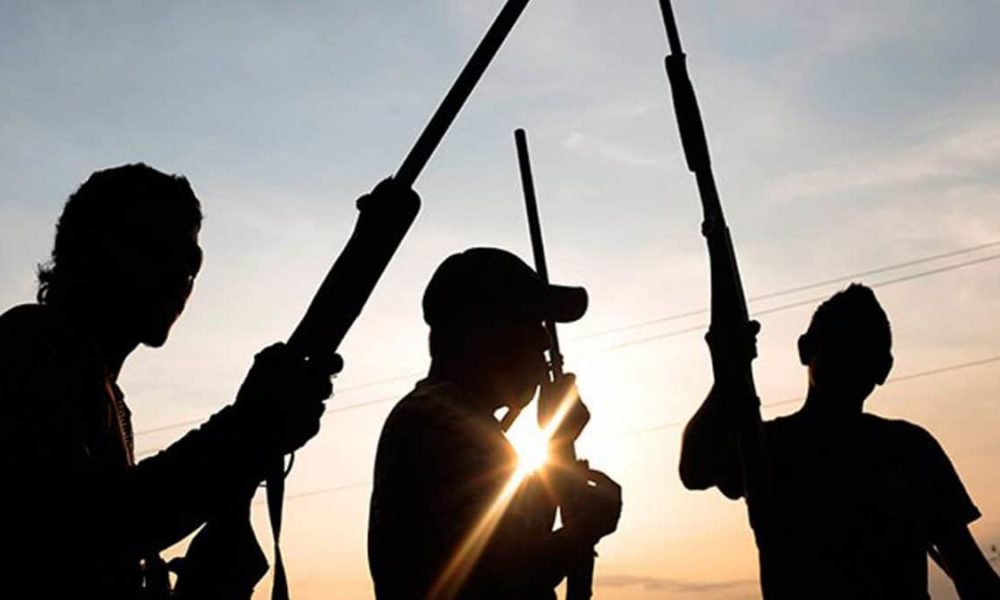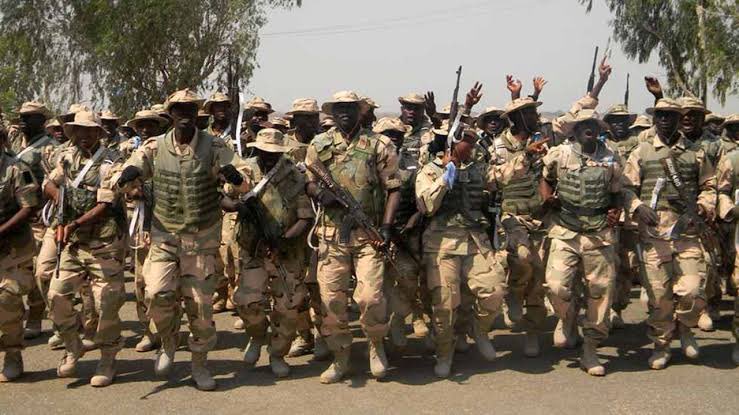Opinion: Yes Nigeria is a failed state but..

Another week, another set of devastating headlines for Nigeria.
It would be upsetting enough to read some of these stories in the same year. But just look at what we’ve had to read about in the last seven days.
The kidnapping of “at least” two hundred students in Tegina – taking the number of children held for ransom in our northern states this year alone to over 700.
International human rights pressure group Amnesty International launching a campaign to defend freedom of expression in our nation “as critics, journalists and individuals who express dissenting views face intimidation, threats and sometimes arrest.”
Crude oil prices slumping 98% between March and April – a very troubling sign for an economy in which 86% of exports are oil-related.
And in recent hours President Buhari has promised “a rude shock” for secessionists in the south as our nation continues to wage war against itself.
No wonder influential American observers such as the former US ambassador to Nigeria John Campbell came together this week to declare Nigeria “a failed state”.
An opinion piece in the influential Foreign Policy Magazine writes:
“Nigeria has long teetered on the precipice of failure. But now, unable to keep its citizens safe… Nigeria has become a fully failed state.
“This designation…is not a knee-jerk, casual labelling using emotive and pejorative words. Instead, it is a designation informed by a body of political theory.
“(A failed state) lacks security, is unsafe, has weak rules of law, is corrupt, limits political participation and voice, discriminates within its borders against various classes and kinds of citizens, and provides educational and medical services sparingly.
“Most of all, failed states are violent… Nigeria now confronts six or more internal insurrections and the inability of the Nigerian state to provide peace and stability to its people has tipped a hitherto very weak state into failure.”
Can any of us really claim that Nigeria does not meet that definition for a failed state?
It is time for us to be as honest with ourselves as a nation as other nations increasingly are with us.
This current administration came to power to fight corruption and end activities of terrorists. Neither has been achieved. But a simple change of government is not enough to solve the many problems facing our nation.
The first step towards tackling any of them is communication and co-operation. Only through dialogue can we hope to unite to tackle these issues as one, and face the future together.
Amnesty International’s campaign highlights how toxic, aggressive and intimidating our online discourse has become.
But this cuts both ways. Although the Amnesty campaign highlights many egregious abuses of power carried out by the authorities against people whose only crime is expressing dissenting opinions online, politicians and political institutions themselves are all-too-often also subject to online threats, misinformation and harassment from the people they are trying to serve.
We need to be honest with each other about what has gone so wrong for our nation. But shouting and threatening each other won’t make things any better. We need to come together to highlight problems, build bridges and collaborate on solutions.
The Foreign Policy article in particular highlights how corruption in our nation “always a problem in Nigeria, has remained endemic”.
It states: “Buhari’s administration came to power in 2015 and won reelection in 2019 with promises to clean up corruption. But Nigeria is as corrupt at every jurisdictional level as it has been for decades… calling out failure for what it is may induce the government of Nigeria itself.

What is the way forward?
Nigeria’s biggest security concern today is Nnamdi Kanu and the gang of marauders he has assembled. There needs to be some sorts of conversation with these Biafra agitators before they are completely out of hand.
As for the criminal gangs who engage in kidnap for ransom in the central and northeastern parts of the country, they also need to be negotiated with. Most of them have argued that they engage in criminality to survive which is why the country must come up with policies that will generate employment fast. Agriculture has always been Nigeria’s main stay of the economy. Our policy makers just have to figure out how to attract the right investors.
And of course, the country’s security architecture needs to be overhauled. We currently have one central police command which had proven to be inefficient. America has over 8,000 police units and departments, we also can restructure our police force in such a way that every local government controls its own security. Then we can have another police command controlled by states and an upgraded DSS and the military controlled by the federal government.
The current reality is Nigeria is a failed state, and this state of affairs won’t change unless Nigerians agree to do something about it.
